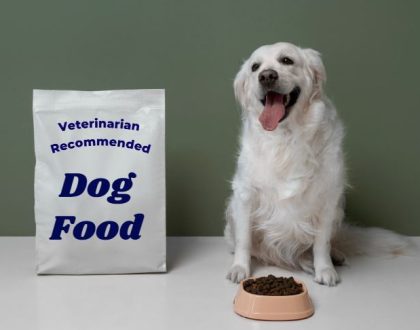
the scientific study of pet nutrition by veterinary nutrition specialists and experts.
Diet-Associated Dilated Cardiomyopathy (DCM): Update, July 2019

Latest FDA Update
On June 27, 2019, the FDA posted an update on their investigation into diet-associated dilated cardiomyopathy (DCM). Since then, there have been many news reports, company responses, and internet/social media interpretations of the update. I encourage everyone to read the actual reports and am providing direct links to all parts of the report below:
Thoughts on the FDA Update
One of the responses I’ve seen most often since the latest update was released is about the numbers of dogs affected by diet-associated DCM. The FDA received 524 reports of DCM (515 in dogs and 9 in cats) between January 2014 and April 2019, with more than 200 of those being reported between December 2018 and April 2019. Some have commented that this amounts to just a miniscule percentage of all dogs eating grain-free or other suspected diets. It is true that not every dog eating one of these diets will develop DCM, but there are a number of important factors to consider about the FDA’s numbers:
- Not all DCM cases are reported to the FDA. Most veterinarians and veterinary cardiologists I talk to do not report their cases to the FDA, so I believe the FDA numbers are a very low estimate of the actual number of dogs affected.
- Overt DCM may not be the only finding with this problem. The FDA’s 524 cases include only those pets diagnosed with DCM, but there is likely a spectrum of changes in the heart that occur as the result of this problem, ranging from early subtle changes to reduced contractility to enlarged heart chambers and finally to DCM. In their update, the FDA states: “While not DCM, these cases are important to report to FDA, so we may better understand if they could be related to development of DCM or associated with certain diets.”
- Some breeds seem to be reported at higher rates than others. While some of this could be due to certain breeds being more susceptible to the disease, the high percentage of certain breeds may also be related to increased reporting. This could be the case for Golden Retrievers, where there is heightened awareness and grass roots efforts of the Golden Retriever community. This is great, and I encourage other breed clubs to become active as well.
- In contrast, there may be under-reporting of other breeds. Many veterinarians don’t think to report a Doberman Pinscher, Boxer or Great Dane as a possible diet-associated DCM case since these breeds commonly develop primary (non-diet-associated) DCM. However, even some dogs of these typical DCM breeds have improved with diet change so they appear just as likely to have diet-associated DCM as other breeds.
- Dogs with taurine deficiency appear to be over-represented in the FDA report (42%). In our research, less than 10% of dogs with DCM are taurine deficient and in one study, only 2 of 48 dogs (both eating grain-based diets) had low taurine levels. Given so much attention on taurine deficiency, it may be that taurine deficient dogs (particularly Golden Retrievers) are more likely to be reported.
- Conversely, we don’t know that all of the 524 cases reported to the FDA are diet-associated. For breeds that don’t usually get DCM (such as Miniature Schnauzers or French Bulldogs), it’s likely that diet is the cause. However, in a predisposed breed like a Doberman Pinscher, the only way to know if the disease is diet-associated is to change the diet and see if the heart improves (which sometimes occurs in diet-associated DCM but is unheard of in the genetic form of the disease in Dobermans). Therefore, while all 524 of the FDA’s cases had DCM, not all of them may be diet-associated.
I hope this list emphasizes how difficult it is to accurately answer the question of how many dogs are affected, but the bottom line is that this problem is likely more extensive than what has been reported to the FDA. And, more importantly, a single dog developing DCM as the result of diet is one too many!
We, the FDA, and many others are hard at work trying to determine the cause of diet-associated DCM as quickly as possible, as well as to better understand the response to diet change and heart medications for affected dogs. We hope a discovery will happen soon, but this is a challenging problem that has been hard to solve thus far. We know this is concerning to pet owners and we share in their worry, stress, and desire to get an answer quickly. We encourage pet owners to talk to their veterinarians about their pets’ diet and whether any additional testing is recommended. If your dog has been eating a grain-free or other diet mentioned in the FDA update, my last post on diet-associated DCM provides some recommendations. We also encourage pet owners to use resources like the FDA, Petfoodology, and others listed below to learn more about diet-associated DCM and to make more objective decisions about their pet food.
If your dog has been diagnosed with DCM, please report it to the FDA to help in the investigation:
https://www.fda.gov/animal-veterinary/report-problem/how-report-pet-food-complaint.
Additional Resources
- Previous Petfoodology posts on diet-associated DCM
A broken heart: Risk of heart disease in boutique or grain-free diets and exotic ingredients (6/4/2018): https://vetnutrition.tufts.edu/2018/06/a-broken-heart-risk-of-heart-disease-in-boutique-or-grain-free-diets-and-exotic-ingredients/
It’s Not Just Grain-Free: An Update on Diet-Associated Dilated Cardiomyopathy (11/29/2018): https://vetnutrition.tufts.edu/2018/11/dcm-update/
- World Small Animal Veterinary Association Nutrition Toolkit, including tools for pet owners, such as “Selecting the Best Food for your Pet” and “The Savvy Dog Owner’s Guide to Nutrition on the Internet”:
https://www.wsava.org/Guidelines/Global-Nutrition-Guidelines
- You may find Cummings School’s HeartSmart website helpful. This site was developed for owners of dogs and cats with heart disease and contains information on different types of heart disease, as well as diagnosis, treatment, and monitoring of pets with heart disease (including diet): https://vetmed.tufts.edu/heartsmart/
Want to read more information on feeding your pet?
Subscribe to always know when we add new material!
Recommended Posts

Can Diet Help With My Dog’s Seizures?
January 18, 2024

The Most Popular Holiday Foods…That Your Pet Should Avoid!
December 08, 2023

Veterinarian Recommended Pet Foods: What You Need to Know
November 05, 2023

